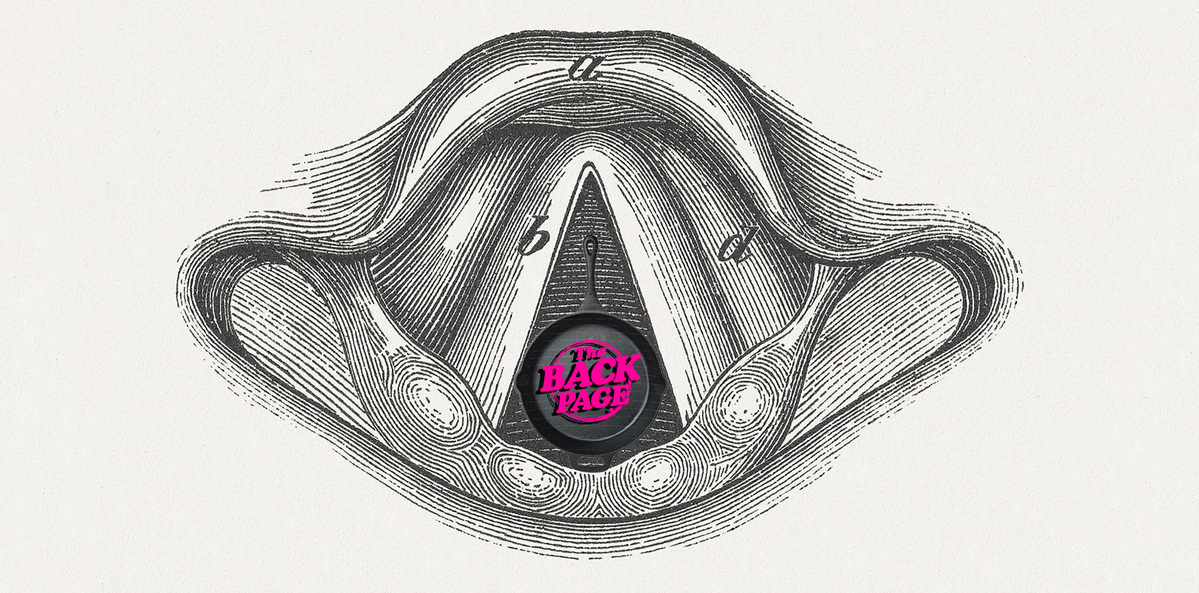You’re making me spiral into a maelstrom of ennui.
This Back Page correspondent is one of those weird people who fall down the fault lines between generations.
Where the tectonic plates of Baby Boomers and Gen X rub up against each other, there I am, born in the waning days of 1964.
I generally love the younger generations. I am happily one of the oldest in my workplace and watching the youngsters – and by youngsters I mean anybody born after 1980, frankly – gives me great joy. They’re going to save the planet because goodness knows people my age have royally stuffed it.
I married a Gen-Xer, swap war stories with Gen Y with a minimum of irony, enjoy watching the Millennials grow and learn and prosper, and probably quite fortunately, don’t yet know any Alphas that I’m aware of.
I’m self-aware enough to know that every generation, including mine, does dumb, stupid, dangerous, reckless, ultimately self-harming things when they’re young, and that’s just what humans do as we learn.
I am the woman, after all, who grew up before random breath testing, drank till 3am then curb-hugged my Mini Moke Californian home, parked it sideways in my parents’ driveway (dead giveaway) before crawling in the front door.
So, I am tolerant of a lot.
But there is something, dear readers, that gets on my last nerve, and has been doing so since 2010, thanks to Britney Spears, Katy Perry, Kim Kardashian and Paris Hilton (what happened to her??).
Vocal fry. Otherwise known as creaky voice. That way many young women have of sounding like they just don’t have the strength to push air through their vocal cords. And even if they did have the strength, they just cannot be bothered, people.
Here’s a great explainer from Lauren Sergy.
Recently Kanye West survivor Julia Fox has been getting the absolute bejeebus knocked out of her on TikTok because of the way she pronounced “uncut gems” in an Alex Cooper podcast – here you go, you’re welcome.
I take part in phone calls and Zoom meetings all the time with women in their 20s and 30s who are working for health and hospital services, trying to tell me very serious things about very serious programs, interventions and policies.
And all I can hear is how utterly bored, world-weary and soaked in ennui they are. They could be the most passionate advocates for their respective health systems on the planet but I’m sitting here wondering whether I need to call an ambulance.
A 2014 study found that people with fried vocals, particularly women, were perceived as less competent, less educated, less trustworthy, less attractive, and less hirable.
“The negative perceptions of vocal fry are stronger for female voices relative to male voices. These results suggest that young females should avoid using vocal fry speech in order to maximise labour market opportunities,” said the authors.
That’s been backed up by a November 2022 study published in Journal of Voice which found that “female speakers with vocal fry were rated as less attractive and intelligent than female speakers without vocal fry, but perception of male speakers did not change whether or not vocal fry was present in the acoustic signal”.
Cate Madill from the University of Sydney’s Voice Research Laboratory wrote that vocal fry can do physical damage.
“This type of vocal cord vibration results in increased collision force of the true vocal folds (remember the true vocal folds are the only muscles in the body that hit each other). This increase in force during vibration of the vocal folds can be traumatic and cause injury to the vocal folds if it occurs a lot – injuries such as laryngitis, vocal fold swelling, and vocal nodules, to name just a few,” she wrote.
Men fry their vocals differently from women, says another study, with the guys doing it constantly through a sentence, whereas women tend to do it at the end of sentences.
Is it getting more prevalent? A recent systematic review of the quantitative prevalence of creaky voice said “that creaky voice prevalence in English is not well understood, and that widespread claims of its recent increase among young American women have not been empirically confirmed”.
Maybe, but my anecdotal evidence suggests 20-40-year-old Australian women working in PR and comms in the health sector are bloody rampant with it and I wish they’d stop.
Thankfully my colleagues are not perpetrators of this heinous habit because there would be words said. Or at least drawwwwwwwwled.
Send story tips to penny@medicalrepublic.com.ay-yewwwwww.


